FIG World Cup
FIG World Cup refers to a number of events organized by the International Gymnastics Federation (FIG) across seven competitive gymnastics disciplines: 1) acrobatic gymnastics, 2) aerobic gymnastics, 3) men's artistic gymnastics, 4) women's artistic gymnastics, 5) women's rhythmic gymnastics, 6) trampoline and tumbling, and 7) parkour.[1][2]
History
The FIG hosted the first Artistic Gymnastics World Cup on an international scale in 1975. This event was an original competition reserved for the best gymnasts, bringing together competitors in all-around competition and in apparatus finals. This initiative was taken in a particular context, since the World Artistic Gymnastics Championships took place every four years.[3] In 1983, FIG decided to hold a Rhythmic Gymnastics World Cup for the first time, after six editions of the Artistic Gymnastics World Cup. At the time, the World Rhythmic Gymnastics Championships were also held every four years. The World Cup events were upheld only until 1990, since FIG decided to host the Artistic and Rhythmic Gymnastics World Championships every year starting in 1991. Acrobatic gymnastics, a discipline not recognized by the International Gymnastics Federation prior to 1999, had World Cup events held from 1975 to 1993, organized by the International Federation of Sports Acrobatics (IFSA). Similarly, trampoline and tumbling World Cup events were organized from 1993 to 1997 by the Fédération Internationale de Trampoline (FIT). FIG later recognized IFSA and FIT World Cup events as official FIG World Cup competitions.[3]
In 1997, the World Cup was revived as a series of qualifying events for a period of two years, culminating in a final event that was known as the World Cup Final. The different stages, known as World Cup qualifiers, mostly served the purpose of awarding points to gymnasts according to their placements.[4][5][6][7] These points would be added up over the two-year period to qualify a limited number of gymnasts to the biennial World Cup Final event.[8][9][10] In 2001, FIG hosted the World Series for aerobic gymnastics for the first time, equivalent to the World Cup format. FIG introduced the first World Cup series in acrobatic gymnastics in 2003.[11] Both aerobic and acrobatic World Cup series were also competed in a two-year period, with a World Cup Final (or World Series Final) event closing the calendar. The World Cup Final format lasted for these disciplines until 2007. In 2008, the World Cup Final format was terminated for the other disciplines: artistic, rhythmic, trampoline and tumbling.[12]
Beginning in 2009, the World Cup series changed focus from a biennial series to a yearly series with no culminating final event. In each of the stages, medals are awarded to the top three gymnasts or groups in each event, as well as prize money. In 2018, parkour was recognized as a discipline by FIG, and World Cup stages were held for the first time in collaboration with the Festival International des Sports Extrêmes (FISE). The 2019 and 2020 World Cup series in artistic gymnastics, rhythmic gymnastics and trampoline will be part of the qualification process to the 2020 Tokyo Olympics, a first in the World Cup series.
World Cup series
Artistic gymnastics
Since 1997, the Artistic Gymnastics World Cup has been contested as a series of stages in different cities around the world. From 2003 to 2010, events at the Artistic Gymnastics World Cup series were divided into Category A and Category B; Category A events were reserved for invited athletes only, while Category B events were open to all athletes.[13] In 2011, the individual apparatus competitions were renamed World Challenge Cups while the all-around competitions retained the World Cup name. Currently, the World Cup series is divided into three groups: 1) All-Around World Cup series, 2) World Challenge Cup series, and 3) World Cup series, where gymnasts compete in individual apparatus. All of the World Challenge Cup competitions remain open to every gymnast, while All-Around World Cup competitions are by invitation only, according to the results of the previous World Championships or Olympic Games.[14]
Rhythmic gymnastics
Since 1999, the Rhythmic Gymnastics World Cup has been competed as a series of events held in different countries.[15] From 2003 to 2016, events at the Rhythmic Gymnastics World Cup series were divided into Category A and Category B; Category A events were reserved for invited athletes, while Category B events were open to all athletes.[13] Since 2017, the World Cup series is divided in: 1) the World Cup series; and 2) the World Challenge Cup series. All of the World Cup and World Challenge Cup events are open to all athletes, and all of the events feature both all-around and apparatus competitions.[16]
The Rhythmic Gymnastics World Cup should not be confused with the Rhythmic Gymnastics Grand Prix series, which is neither officially organized nor promoted by FIG.
Other disciplines
As of 2018, series of World Cup events are held yearly in acrobatic gymnastics, aerobic gymnastics, trampoline and tumbling, as well as parkour. All events are organized and sanctioned by FIG.
FIG World Cup Final
The World Cup Finals were held as the final event of the World Cup circuit for each of the disciplines in gymnastics until 2008. The International Gymnastics Federation officially recognizes only a number of events as World Cup Final events, as shown below.[17][18][19][20][21]
| Year | Acrobatic | Aerobic | Artistic | Rhythmic | Trampoline | |||||
|---|---|---|---|---|---|---|---|---|---|---|
| Event | Host | Event | Host | Event | Host | Event | Host | Event | Host | |
| 1975 | 1st IFSA World Cup | 1st World Cup Final | ||||||||
| 1977 | 2nd IFSA World Cup | 2nd World Cup Final | ||||||||
| 1978 | 3rd World Cup Final | |||||||||
| 1979 | 4th World Cup Final | |||||||||
| 1980 | 5th World Cup Final | |||||||||
| 1981 | 3rd IFSA World Cup | |||||||||
| 1982 | 6th World Cup Final | |||||||||
| 1983 | 4th IFSA World Cup | 1st World Cup Final | ||||||||
| 1985 | 5th IFSA World Cup | |||||||||
| 1986 | 7th World Cup Final | 2nd World Cup Final | ||||||||
| 1987 | 6th IFSA World Cup | |||||||||
| 1989 | 7th IFSA World Cup | |||||||||
| 1990 | 8th World Cup Final | 3rd World Cup Final | ||||||||
| 1991 | 8th IFSA World Cup | |||||||||
| 1993 | 9th IFSA World Cup | 1st World Cup (FIT) | ||||||||
| 1995 | 2nd World Cup (FIT) | |||||||||
| 1997 | 3rd World Cup (FIT) | |||||||||
| 1998 | 9th World Cup Final | |||||||||
| 1999 | 4th World Cup (FIG) | |||||||||
| 2000 | 10th World Cup Final | 4th World Cup Final | 5th World Cup (FIG) | |||||||
| 2001 | 1st World Series Final | |||||||||
| 2002 | 11th World Cup Final | 5th World Cup Final | 6th World Cup (FIG) | |||||||
| 2003 | 1st FIG World Cup Final | 2nd World Series Final | ||||||||
| 2004 | 12th World Cup Final | 6th World Cup Final | 7th World Cup (FIG) | |||||||
| 2006 | 13th World Cup Final | 7th World Cup Final | 8th World Cup (FIG) | |||||||
| 2007 | 2nd FIG World Cup Final | 3rd World Series Final | ||||||||
| 2008 | 14th World Cup Final | 8th World Cup Final | 9th World Cup (FIG) | |||||||
Successful nations
What follows are lists of nations which have earned at least one medal at one of the stages of the FIG World Cup circuit, divided by discipline. The events are sometimes referred to as World Series, World Cup or World Challenge Cup, depending on the format and the discipline contested. Only senior events were considered for the making of the lists.[22][23][24][25][26]
Acrobatic gymnastics
Results accounted for include: 1) the different editions of the IFSA World Cup from 1975 to 1993; and 2) the different stages of the FIG World Series and FIG World Cup series.
.svg.png)


.svg.png)














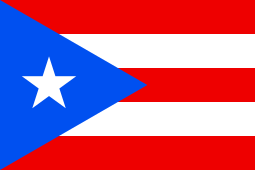







Aerobic gymnastics
Results accounted for include the different stages of the FIG World Series and FIG World Cup series.

.svg.png)





























Artistic gymnastics
Results accounted for include the different stages of the FIG World Cup series and the FIG World Challenge Cup series.



.svg.png)



.svg.png)


.svg.png)


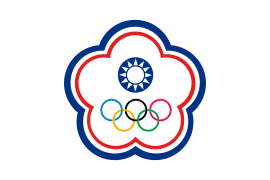








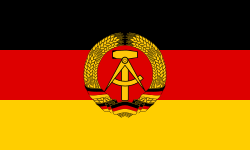







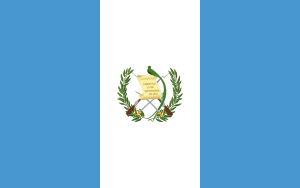











































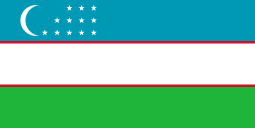



Parkour
Results accounted for include the different stages of the FIG World Cup circuit, started in 2018 in collaboration with the Festival International des Sports Extrêmes (FISE).
Rhythmic gymnastics
Results accounted for include the different stages of the FIG World Cup series and the FIG World Challenge Cup series.




.svg.png)






















Trampoline and tumbling gymnastics
Results accounted for include: 1) the different editions of the FIT World Cup from 1984 to 1998; and 2) the different stages of the FIG World Series and FIG World Cup series.
.svg.png)


.svg.png)

.svg.png)

























See also
References
- Fédération Internationale de Gymnastique
- "Gymnastics - canadiansportforlife.ca". Archived from the original on 2016-10-11. Retrieved 2018-08-08.
- "Artistic Gymnastics". Federation Internationale de Gymnastique. Archived from the original on 7 February 2013. Retrieved 25 July 2013.
- Technique Magazine, September/October 1999, page 25
- Technique Magazine, January/February 2000, page 14
- Sports Acrobatics - 2004 World Cup Qualifier
- Sports Acrobatics - 2005 World Cup Qualifier
- Technique Magazine, November/December 2000, page 47
- Sports Acrobatics - 2003 World Cup Final
- Sports Acrobatics - 2007 World Cup Final
- "New World Cup format - 2002". Archived from the original on 2002-12-04. Retrieved 2002-12-04.
- "Fédération Internationale de Gymnastique-World Cup Finals". International Gymnastics Federation. Retrieved 2017-05-02.
- 2003/2004 FIG calendar
- "Fédération Internationale de Gymnastique - Artistic Gymnastics Rules". International Gymnastics Federation. Retrieved 2018-04-27.
- "Technical Regulations 2018" (PDF). International Gymnastics Federation. Archived from the original (PDF) on February 28, 2018. Retrieved March 1, 2018.
- "Fédération Internationale de Gymnastique - Rhythmic Gymnastics Rules". International Gymnastics Federation. Retrieved 2017-05-02.
- FIG - Acrobatic gymnastics
- FIG - Aerobic gymnastics
- "Archived copy". Archived from the original on 2013-02-07. Retrieved 2013-07-25.CS1 maint: archived copy as title (link)
- "World Cup Final list" (PDF). International Federation of Gymnastics. Archived from the original (PDF) on 2013-12-13.
- FIG - Trampoline
- FIG database
- The Sports
- Gymnastics Results
- Gymn Forum - Results
- Sports Acrobatics
- The Sports - 2019 Las Vegas Acro World Cup
- The Sports - 2016 Maia World Cup women's results
- The Sports - 2014 Maia World Cup women's results
- Longines Timing - 2003 World Cup Final
- Sports Acrobatics - 1977 World Cup
- Sports Acrobatics - 1993 World Cup
- The Sports - 2016 Maia World Cup men's results
- FIG - 2018 Baku World Cup
- The Sports - 2015 Maia World Cup
- The Sports - 2014 Maia World Cup men's results
- FIG - 2017 Lisboa World Cup
- Sports Acrobatics - 1991 World Cup
- The Sports - 2015 Geneva World Cup
- 2006 Flanders World Cup
- Sports Acrobatics - 1975 World Cup
- Suzuki World Cup (2010-2015)
- Fédération Internationale de Gymnastique - 2014 Borovets World Cup
- Gym Media - 2005 Rodez World Series
- GymMedia - 2001 World Series Final
- Longines Timing - 2003 World Series Final
- Austria World Cup 2012
- The Sports - 2016 Catanhede World Cup
- GymMedia - 2005 World Series German Open results
- 2015 The Sports - Catanhede World Cup
- Results - 2009 Borovets World Cup
- 2013 Borovets World Cup official results
- FIG - Aerobics - 2000
- FIG Gymnastics, 2019 Cantanhede World Cup
- 2018 Plovdiv World Cup
- Gymnastics Results - 2014 Ghent World Cup
- Gymnastics Results - 2014 Ljubljana Challenge Cup
- Gymnastics Results - 2015 Doha Challenge Cup
- Gymnastics Results - 2016 Szombathely Challenge Cup
- Gymnastics Results - 2016 Baku Challenge Cup
- Gymnastics Results - 2015 Varna Challenge Cup
- Gymnastics Results - 2014 Doha Challenge Cup
- Gymnastics Results - 2015 São Paulo Challenge Cup
- Gymnastics Results - 2017 Doha Challenge Cup
- Gymnastics Results - 2015 Anadia Challenge Cup
- Gymnastics Results - 2005 Maribor World Cup
- Gymn-Forum - 1977 World Cup
- GymMedia - 2003 Thessaloniki World Cup
- AGF 2018
- GymMedia - 1999/2000 World Cup Circuit
- Results - 2018 Melbourne World Cup
- GymMedia - 2011 Doha Challenge Cup
- Gymnastics Results - 2011 Maribor Challenge Cup
- Gymnastics Results - 2016 Mersin Challenge Cup
- Gymnastics Results - 2016 Varna Challenge Cup
- Gymnastics Results - 2016 Ljubljana Challenge Cup
- Gimnasia Latina - 2018 Paris World Cup (in Spanish)
- FIG - 2017 Cottbus World Cup results
- GymMedia - 2005/2006 medal winners
- Gymnastics Results - 2006 Maribor World Cup
- Gymnastics Results - 2010 Doha World Cup
- Gymnastics Results - 2007 Moscow World Cup
- Gymn-Forum - 1978 World Cup
- FIG - Montpellier 2018 - Parkour
- FIG - Hiroshima 2018 - Parkour
- FIG - Chengdu 2019 - Parkour
- FIG - Montpellier 2019 - Parkour
- The Sports - Minsk 2013
- Rsg.net - Bochum 1999
- Sports 123 - World Cup Final - Ribbon
- The Sports - Lisbon 2013
- Sportlicht Ltd. - WC Tashkent 2018 - Groups
- Sports 123 - World Cup Final - Groups
- The Sports - St. Petersburg 2013
- FIG Database - Berlin 2016
- The Sports 123 - Tashkent World Cup
- R-Gymnast - 1986 World Cup Final
- The Sports - Tashkent RG WC 2019
- FIG Database - Minsk 2016
- FIG Gymnastics - 2014 Minsk World Cup
- FIG Gymnastics - 2014 Loule World Cup
- 2003 Prague World Cup women's synchro
- The Sports - 2012 Loule World Cup
- The Sports - 2011 Kawasaki World Cup
- The Sports - 2010 Loule World Cup
- The Sports - 2010 Wroclaw World Cup
- The Sports - 2016 Coimbra World Cup
- GymMedia - 2005 Krasnodar World Cup
- 2003 Flanders World Cup
- GymMedia - 2005 Sofia World Cup
- The Sports - 2016 Arosa World Cup
- FIG Gymnastics - 2015 Loule World Cup
- The Sports - 2010 Ghent World Cup
- 1989 London World Cup
- Trampoline Bulgaria - 2012 Sofia World Cup
- 2019 Khabarovsk World Cup (in Portuguese)
- The Sports - 2012 Albacete World Cup
- The Sports - 2015 Mouilleron le Captif World Cup
- 1984 Antibes World Cup